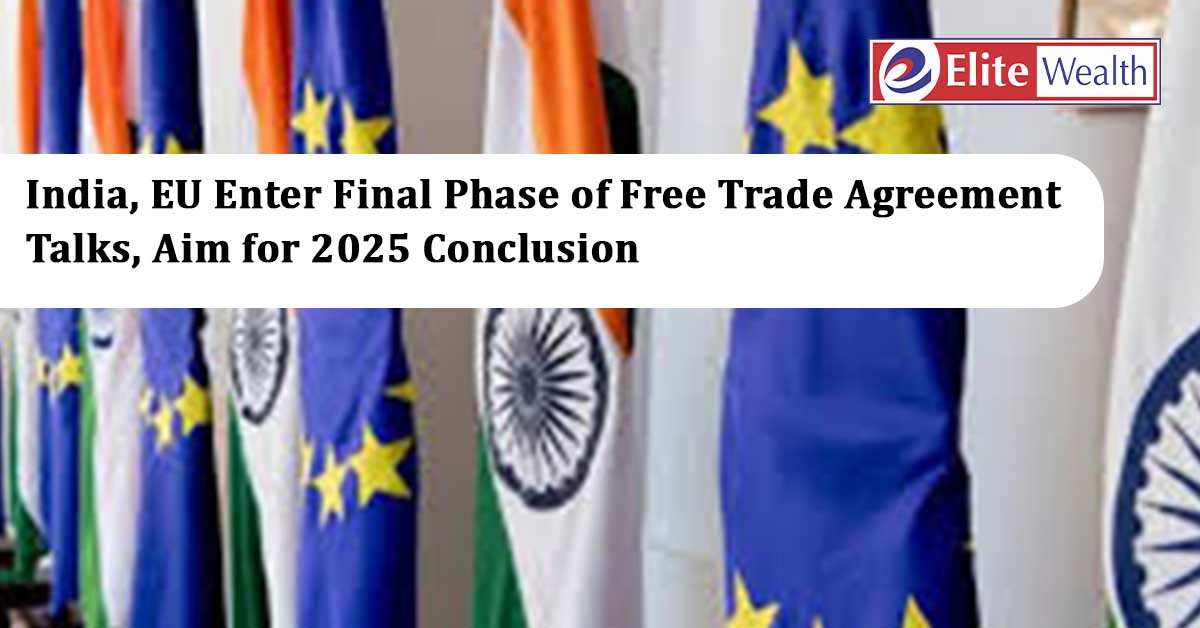
India and the European Union (EU) have entered the final and most challenging stage of negotiations for their long-pending Free Trade Agreement (FTA), the commerce ministry confirmed.
Talks Intensify After 14th Round in Brussels
Both sides concluded the 14th round of negotiations in Brussels last week, though several Indian officials stayed back to continue discussions on key issues — particularly rules of origin (ROO), which determine how much processing must occur in a country for goods to qualify as “made” there.
Commerce Secretary Rajesh Agrawal met Sabine Weyand, Director-General (Trade) at the European Commission, to review progress. Agrawal said that negotiators would now hold two-week-long sessions to push for substantial headway, aiming to finalise the FTA by 2025.
Next Steps and Key Focus Areas
While the next official round of talks is yet to be scheduled, virtual discussions are continuing. A physical visit from the EU trade delegation is expected in November.
India is seeking greater market access for labour-intensive exports such as textiles, leather, and engineering goods, whereas the EU wants tariff cuts on automobiles, liquor, and high-end products.
During the 13th round, over 65% of FTA chapters were already finalised. Both sides are now addressing politically sensitive issues that may require ministerial-level decisions.
Aiming for Comprehensive Trade Framework
India and the EU are negotiating across 23 policy areas, including trade in goods and services, investment, intellectual property rights, government procurement, and sustainable development.
The talks are also linked to parallel negotiations on a Bilateral Investment Protection Agreement (BIPA) and Geographical Indications (GIs) recognition.
Sources earlier indicated the possibility of an early harvest deal, similar to India’s pact with Australia, to secure initial tariff benefits while broader negotiations continue.
Background and Trade Significance
FTA discussions were revived in 2022 after an eight-year pause since 2013. The EU remains India’s largest trading partner, with bilateral goods trade worth $136.5 billion in FY25 — comprising $75.85 billion in exports and $60.68 billion in imports.
Services trade between the two reached $51.45 billion in 2023.
Once concluded, the FTA could make Indian exports such as pharmaceuticals, textiles, steel, and petroleum products more competitive in European markets, while opening up the Indian market further for EU automobiles, wines, and luxury goods.
Disclaimer:
This article is intended solely for educational and informational purposes. The securities or companies mentioned are provided as examples and should not be considered as recommendations. Nothing contained herein constitutes personal financial advice or investment recommendations. Readers are advised to conduct their own research and consult a qualified financial advisor before making any investment decisions.
Investments in securities markets are subject to market risks. Please read all related documents carefully before investing.


